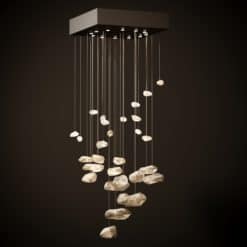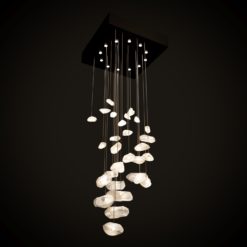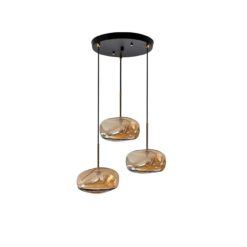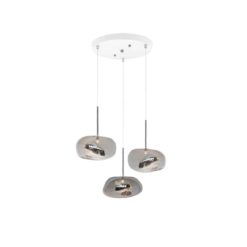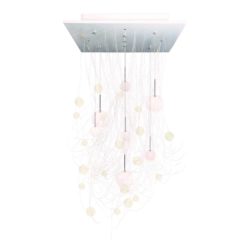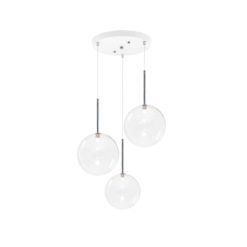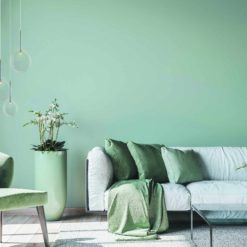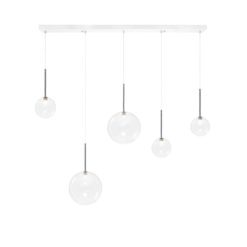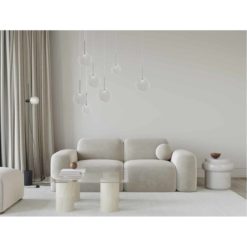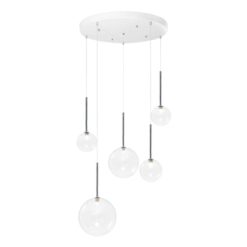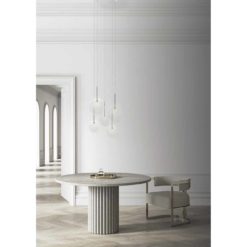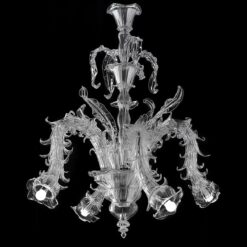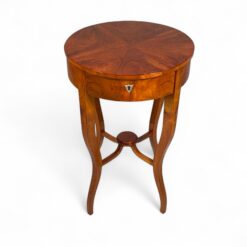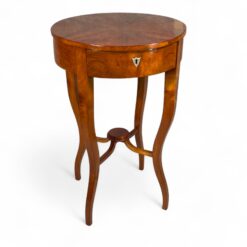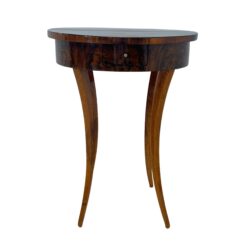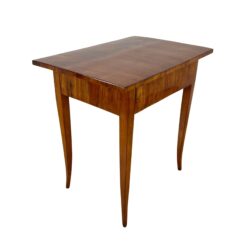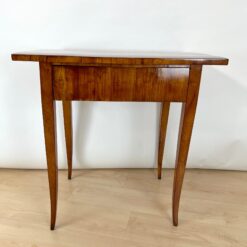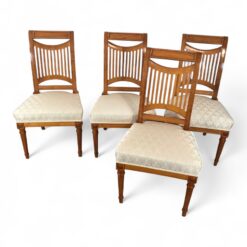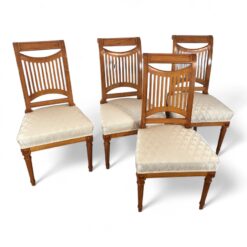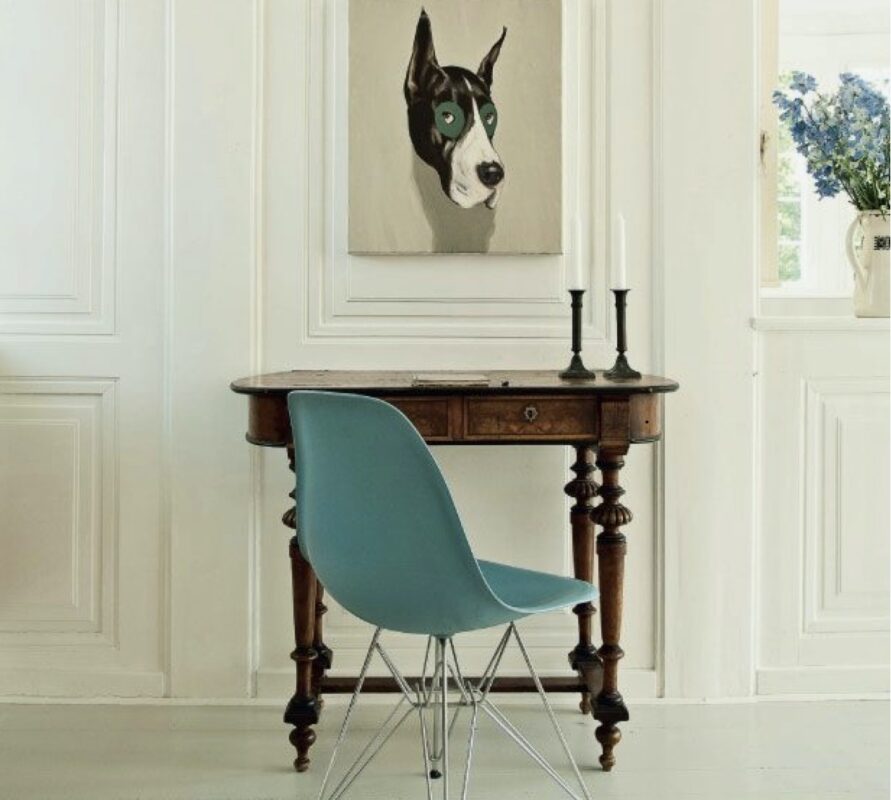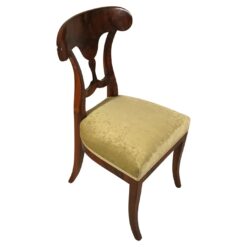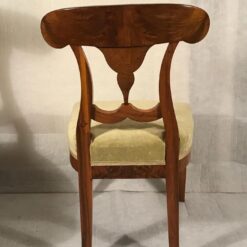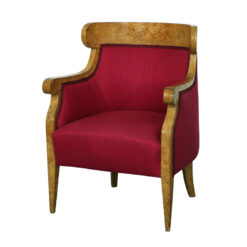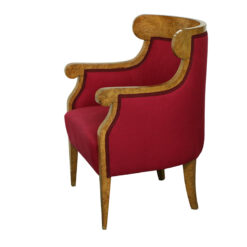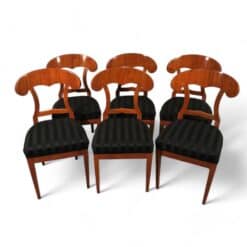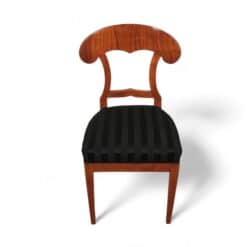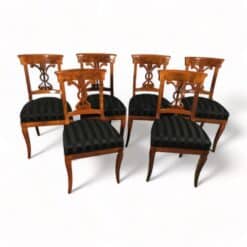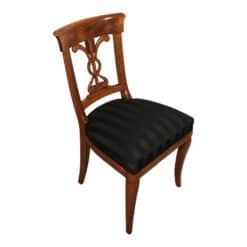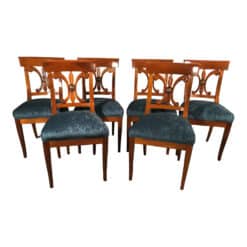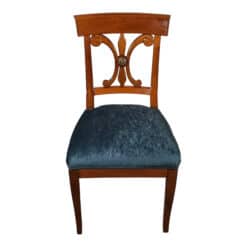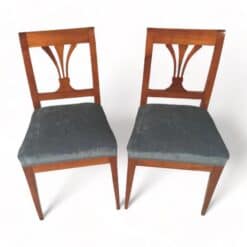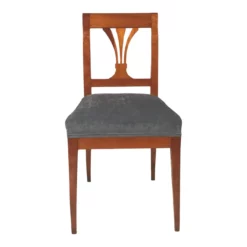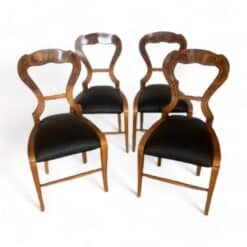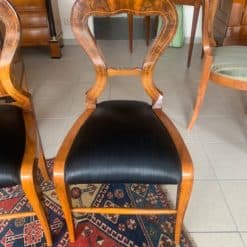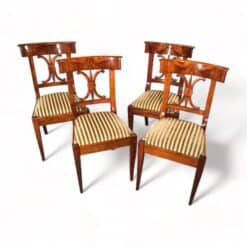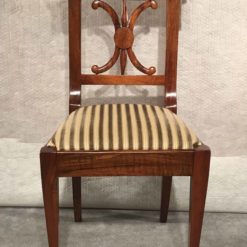Best Sellers
Furniture, How-To & Inspiration
Antiques in Small Spaces: Style Without Clutter
Antiques often conjure images of grand salons, sweeping staircases, and vast dining rooms. But today, many of us live in city apartments, compact houses, or modern spaces where square footage is precious. The good news? Antiques can bring character, history, and craftsmanship even into the smallest interiors—without overwhelming them. The key is choosing the right pieces, scaling thoughtfully, and blending function with style.
In this post, we’ll explore how to maximize style in small spaces with antiques while keeping clutter at bay.
Why Antiques Work Beautifully in Small Spaces
Unlike mass-produced modern furniture, antiques were crafted with a different rhythm of life in mind. Not every antique is oversized or ornate. In fact, many 18th and 19th century pieces were designed for intimate rooms, cozy corners, or specific tasks.
-
Human scale: Chairs, tables, and storage pieces often have a smaller footprint than their modern counterparts.
-
Multifunctionality: A single piece—a sewing table, secretary desk, or chest—was often designed to serve multiple purposes.
-
Craftsmanship: With exquisite veneers, inlays, and joinery, antiques can carry more style in less space than bulkier, minimalist furniture.
Choosing the right antique isn’t about filling space; it’s about curating presence.
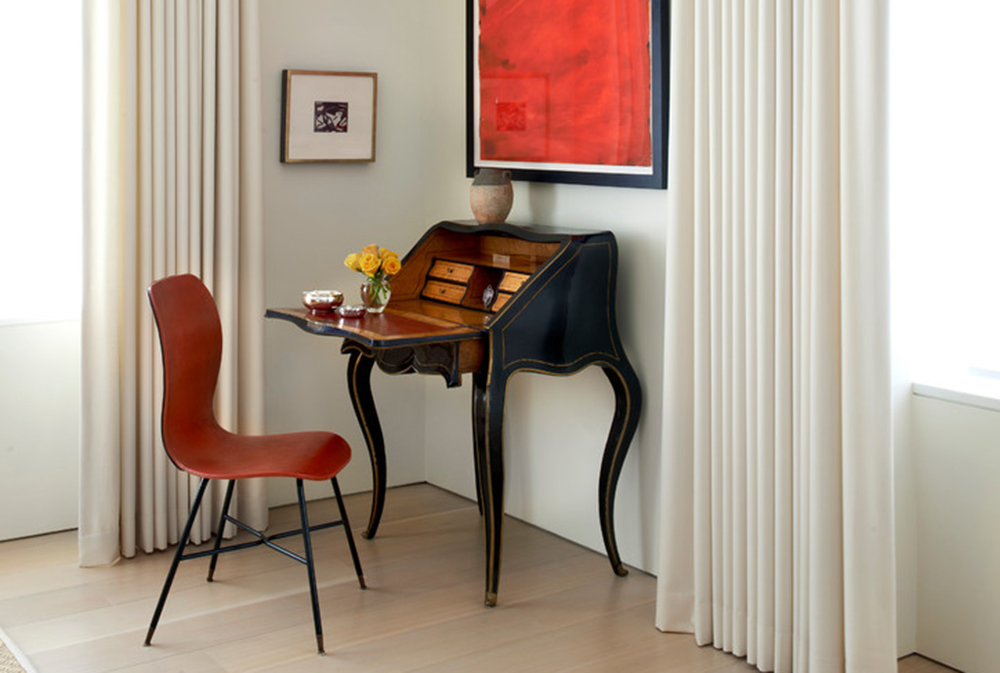
Start with a Statement Piece
Every room, no matter the size, benefits from a focal point. In small spaces, one antique statement piece can anchor the room without making it feel crowded.
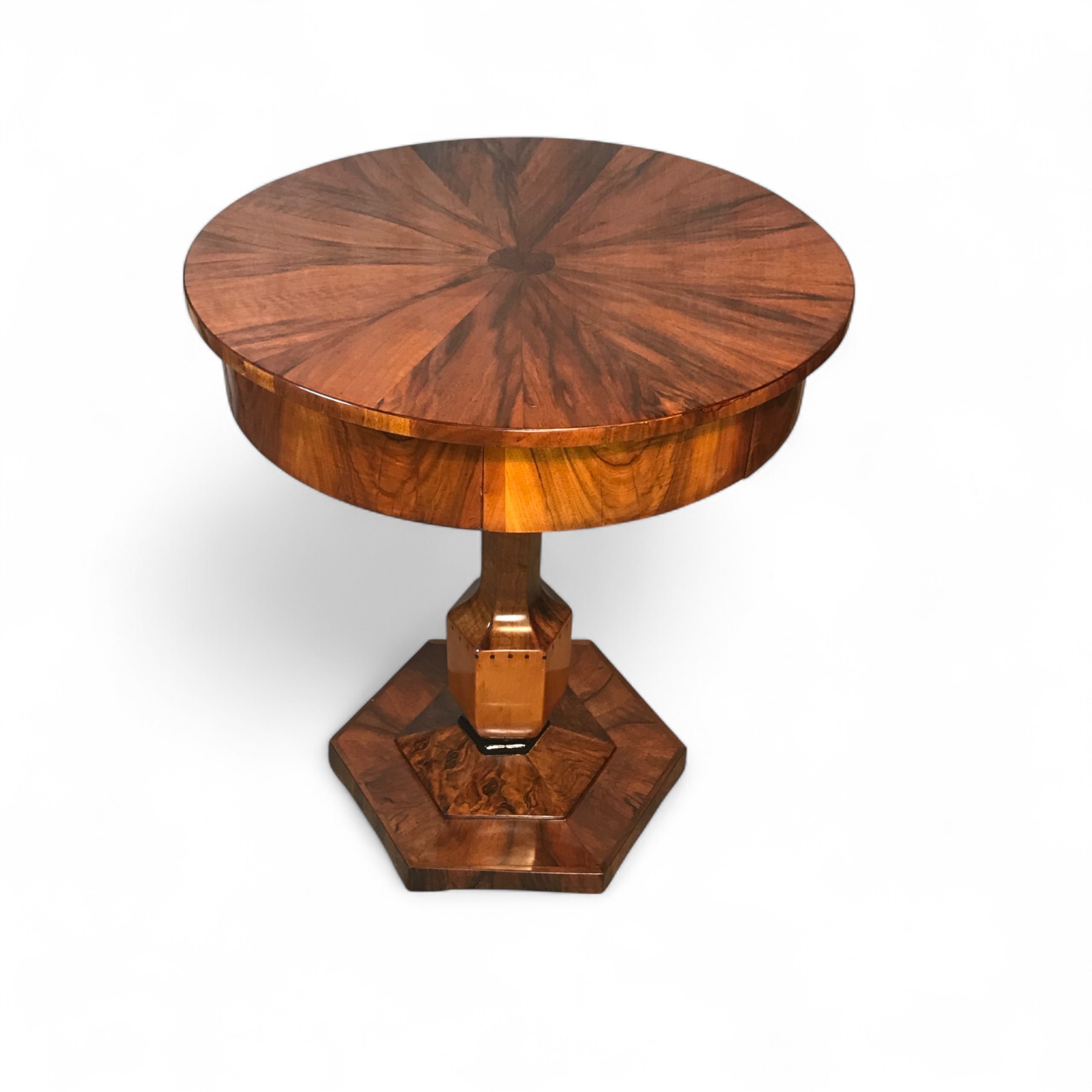
Biedermeier Side Table: Its clean lines and warm cherry veneer fit seamlessly into modern interiors. Place it next to a sofa or use it as a nightstand.
-
Empire Mirror: A giltwood mirror not only adds historical drama but also reflects light, visually expanding the room.
-
Antique Chest of Drawers: Beyond storage, it becomes a design statement. A Neoclassical commode, for example, balances elegance with practicality.
The trick is to let the piece breathe. Surround it with lighter, less ornate furniture so it remains the centerpiece.
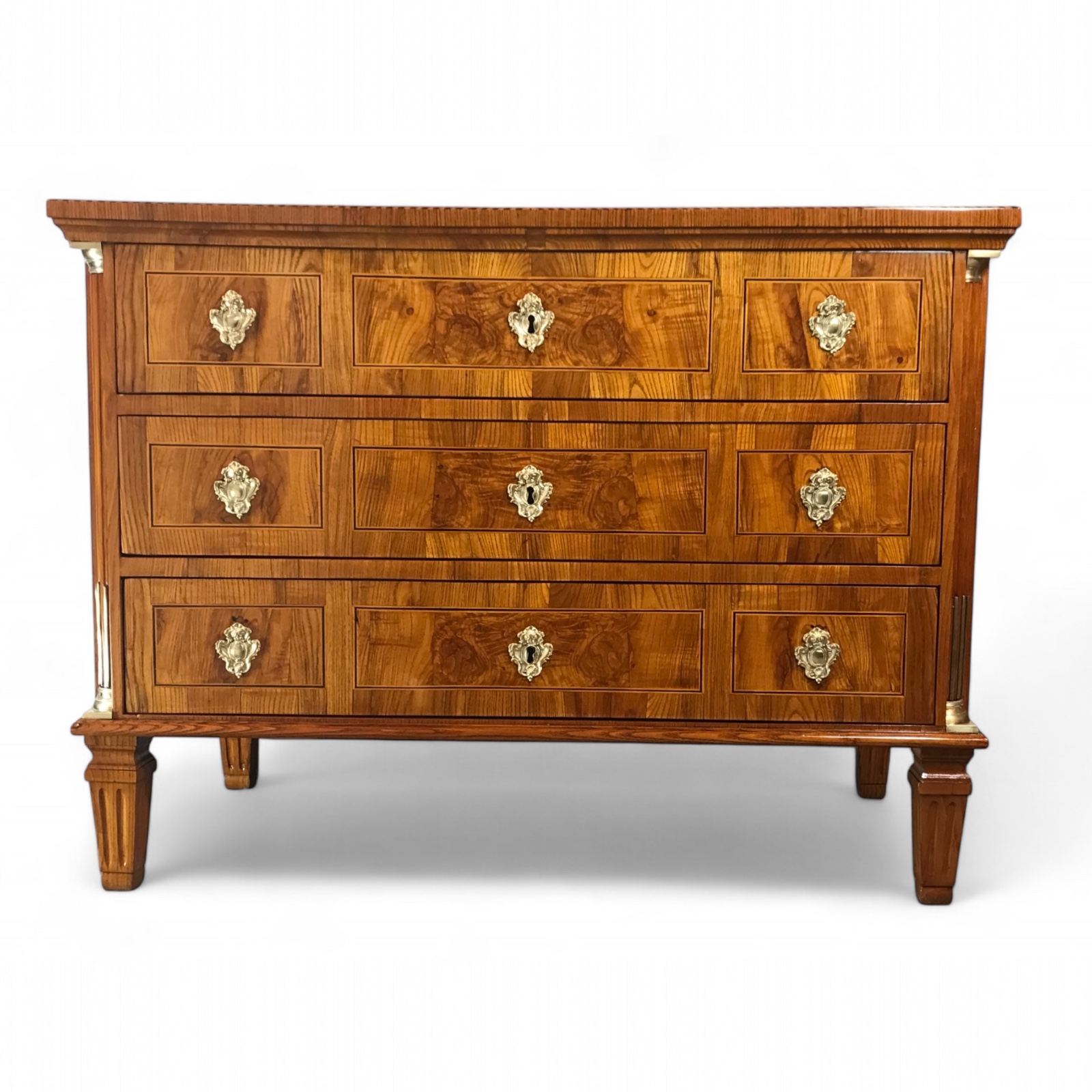
Think Vertically: Mirrors, Cabinets, and Wall Decor
In smaller interiors, vertical space is your best friend. Antiques can help here, too.
-
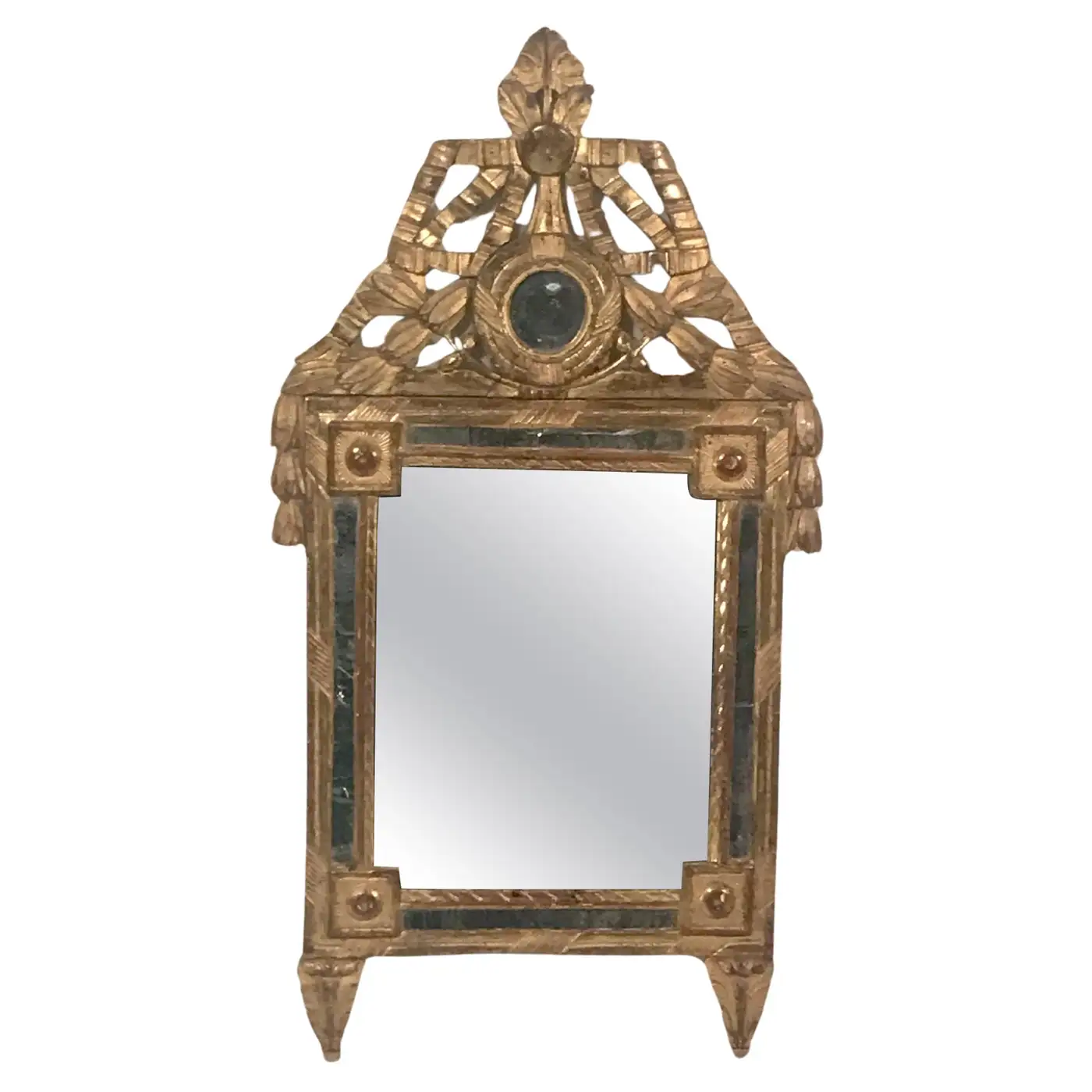
French Louis XVI Mirror- available on Styylish Mirrors: An 18th century giltwood mirror or a Biedermeier wall mirror bounces light, making rooms feel larger.
-
Corner Cabinets: Perfect for unused spaces, these add storage and display without crowding the center of a room.
-
Wall-mounted shelves or sconces: Antique wall brackets or candleholders create atmosphere without taking up floor space.
By lifting the eye upward, you make the entire room feel taller and airier.
Multifunctional Antiques for Modern Living
One of the best-kept secrets of antique furniture is its built-in versatility. Many pieces designed centuries ago work brilliantly in modern small spaces:
-
Secretary Desks: These compact desks feature a fold-down writing surface with hidden storage inside—ideal for home offices in apartments.
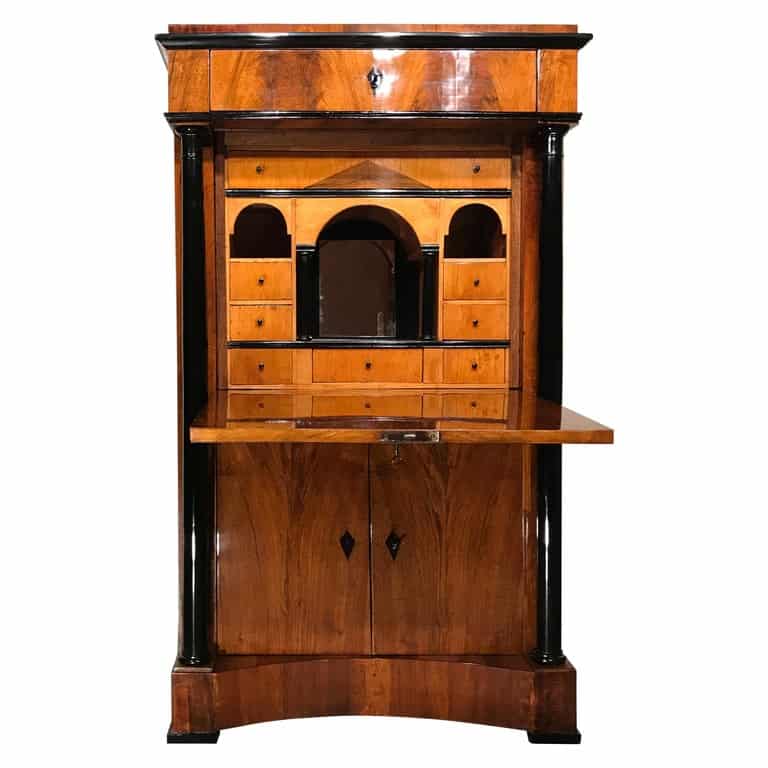
A Biedermeier Drop-Front Secretary Desk – available now on Styylish -
Sewing or Work Tables: Originally designed with compartments for sewing supplies, they now make excellent side tables, cocktail tables, or discreet storage.
-
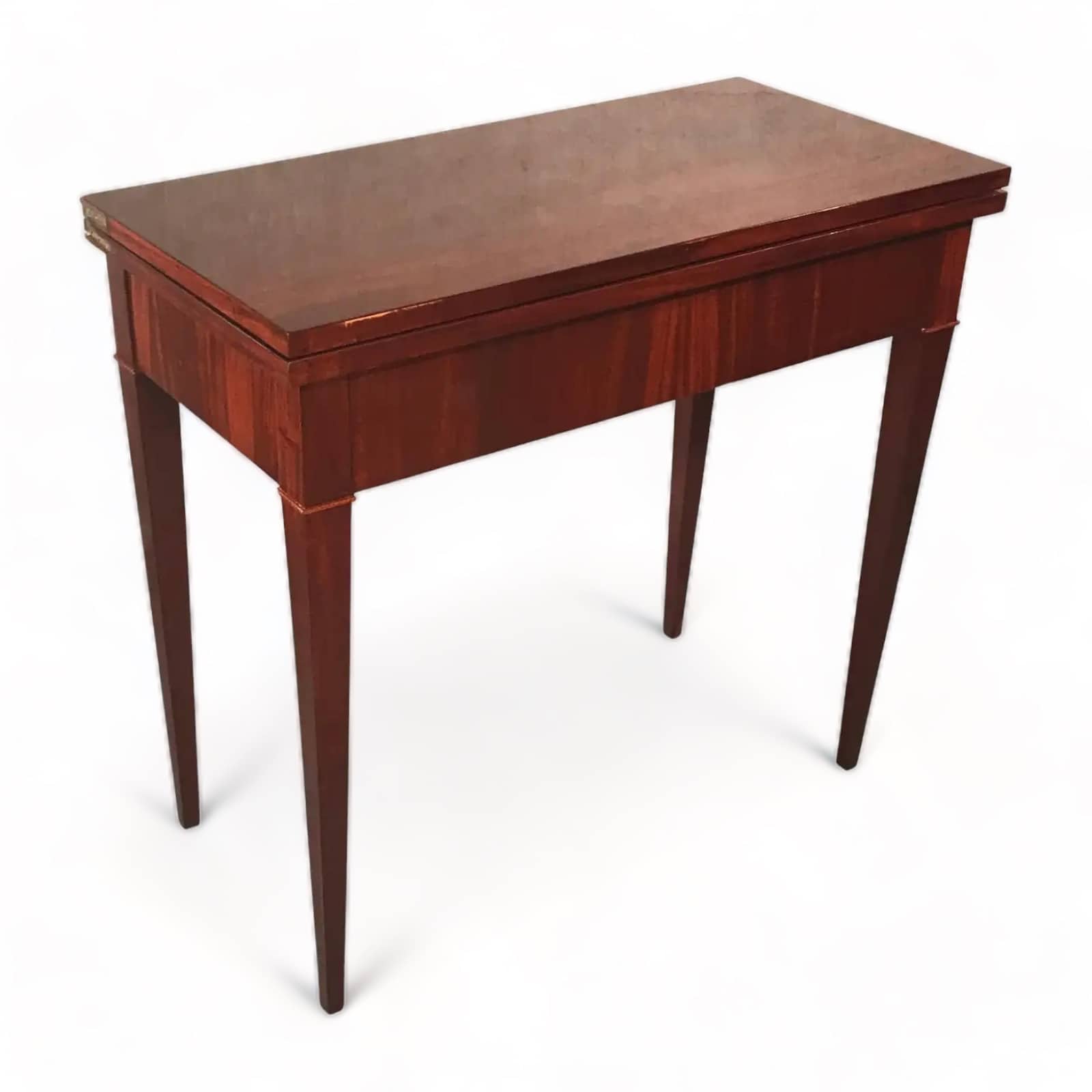
Antique Mahogany Folding or Card Table- available on Styylish Folding or Nesting Tables: Lightweight and flexible, they tuck away when not needed but add instant function for entertaining.
-
Trunks: Antique chests double as coffee tables while providing storage for blankets, books, or seasonal decor.
Choosing antiques with hidden storage or dual uses keeps your space organized and clutter-free.
Mix Antiques with Modern Minimalism
Some worry that antiques might overwhelm a compact interior. The solution? Pair them with modern, minimalist furnishings.
-
A sleek contemporary sofa looks more inviting when paired with a Biedermeier side table.
-
A clean-lined dining room benefits from the contrast of Empire dining chairs with sculptural swan motifs.
-
A pared-down loft space gains warmth from a single Baroque cabinet used as storage and art.
The combination of old and new prevents your space from feeling like a museum while keeping visual balance.
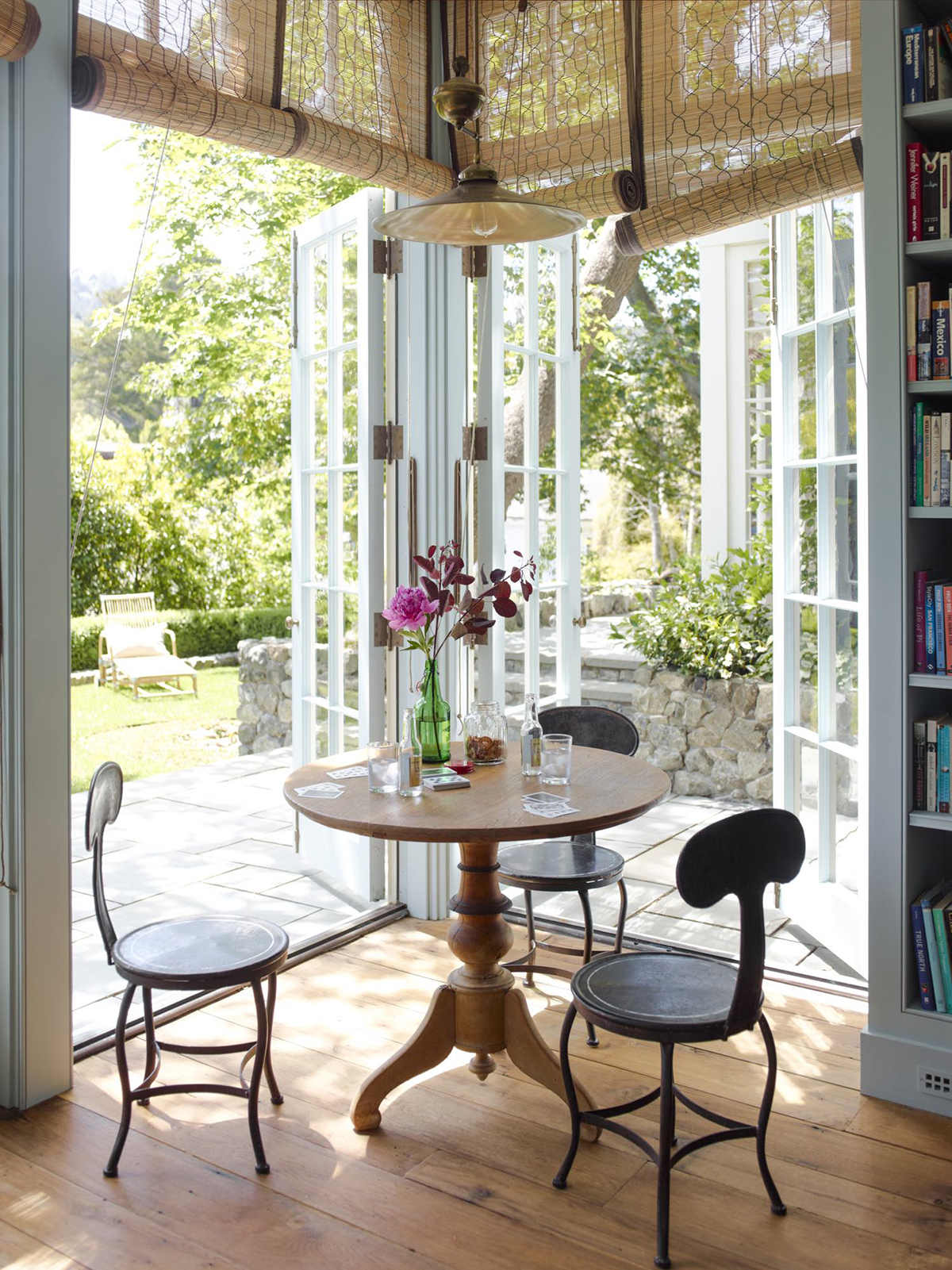
Lighting Matters: Chandeliers, Sconces, and Candlelight

Small rooms often suffer from poor lighting, which makes them feel even smaller. Antique lighting solves both functional and aesthetic needs.
-
Murano glass chandeliers bring sparkle and draw the eye upward.
-
Biedermeier sconces or Empire candleholders mounted on walls add layered illumination.
-
Antique lamps with warm patina shades create soft pools of light for cozy corners.
The glow of antique lighting not only illuminates the room but also enhances the textures and details of your furniture.
Keep It Clutter-Free
Even the most exquisite antiques lose their impact in a cluttered room. To maximize style:
-
Curate thoughtfully: Choose one or two antiques per room as anchors, rather than filling the space with too many pieces.
-
Balance with negative space: Leave room around each piece so it can shine.
-
Smart storage: Use antiques with drawers, hidden compartments, or shelves to keep small items tucked away.
A clutter-free space highlights the artistry of each antique while keeping your home livable.
Sustainable Luxury in Small Spaces
Another reason antiques are ideal for compact living: they embody sustainable luxury. Choosing antiques means:
-
Recycling history: Giving new life to pieces crafted centuries ago.
-
Quality over quantity: Investing in fewer, better things instead of disposable furniture.
-
Unique personality: No two antiques are the same, making your small space truly yours.
Even in a studio apartment, a single antique table or mirror can carry centuries of artistry into your everyday life.
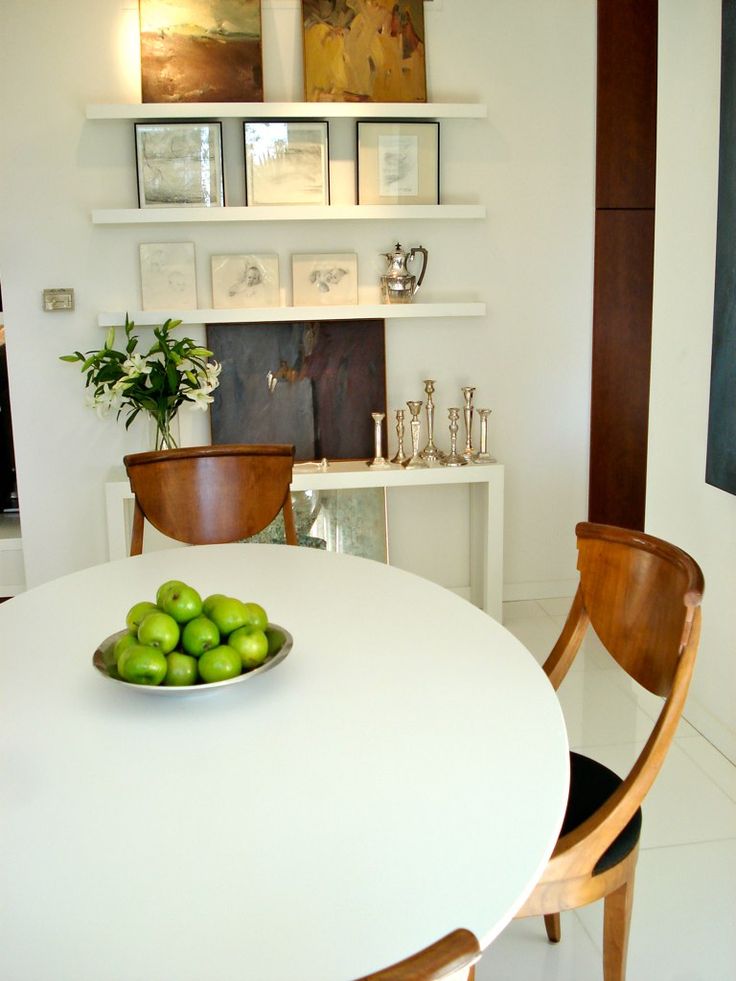
Final Thoughts
Antiques are not reserved for sprawling estates or grand interiors. With careful selection, they bring elegance, history, and functionality into even the smallest of spaces. By choosing multifunctional pieces, embracing vertical design, and blending antiques with modern furniture, you can maximize style without clutter.
Your small space doesn’t have to feel limited—it can feel curated, refined, and full of character. With antiques, every corner tells a story.

